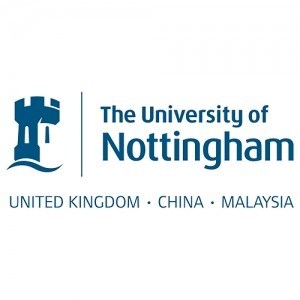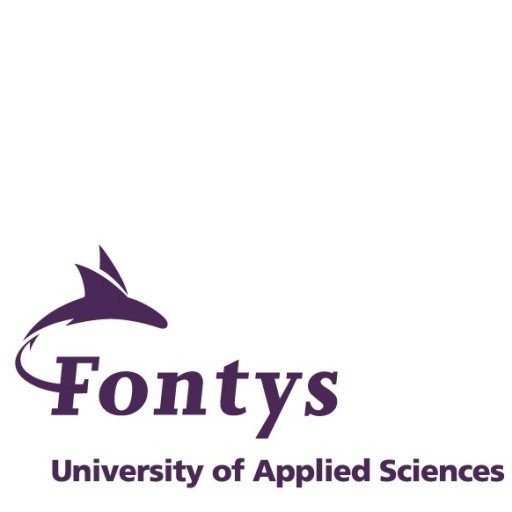Photos of university
The Bachelor of Arts in Interpreting and Translation at The University of Nottingham Ningbo China offers students a comprehensive and rigorous program designed to develop advanced language skills, intercultural competence, and professional interpreting and translation abilities. This undergraduate degree is ideal for students who are passionate about languages and aspire to work in multilingual environments, including international organizations, diplomatic services, global corporations, and media. Throughout the program, students engage in intensive language training in at least two languages, gaining proficiency not only in oral and written communication but also in the cultural contexts that influence language use. The curriculum covers a broad range of topics, including translation theory and practice, consecutive and simultaneous interpreting, multimedia translation, and localization. Emphasis is placed on developing practical skills through hands-on training, simulated interpreting exercises, and real-world projects, preparing graduates for the dynamic demands of professional interpreting and translation careers. The program also includes modules on intercultural communication, ethics in translation, and the use of advanced translation technologies, ensuring students are equipped with the latest tools and knowledge in the field. Additionally, students benefit from internship opportunities, language labs, and partnerships with industry professionals, providing valuable experiential learning. Graduates of this program will possess a deep understanding of language structures, cultural nuances, and the professional standards required in high-level translation and interpreting work. They will be well-positioned to pursue careers in international diplomacy, business negotiations, media broadcasting, or further postgraduate study. The University of Nottingham Ningbo China's interdisciplinary approach and commitment to bilingual education foster an environment where students can thrive academically and professionally, making this program a leading choice for aspiring interpreters and translators.
The Bachelor of Arts in Interpreting and Translation at The University of Nottingham Ningbo China offers students a comprehensive and in-depth education in the skills and knowledge required for professional language services. This programme is designed to prepare students for careers as interpreters and translators in various sectors including diplomatic, business, legal, medical, and cultural fields. The curriculum combines linguistics, cultural studies, and practical training to develop high-level bilingual proficiency and effective communication skills.
Students will engage in rigorous language modules focusing on English and at least one other language, gaining fluency and accuracy in both listening, speaking, reading, and writing. The programme emphasizes practical interpreting and translation exercises, ranging from consecutive to simultaneous interpreting, as well as written translation of various genres, including technical, legal, and literary texts. Throughout the course, students are encouraged to develop their intercultural competence and awareness of cross-cultural communication challenges.
In addition to language-focused courses, students explore core modules in linguistics, semantic analysis, and discourse studies, which provide a solid theoretical foundation for interpreting practices. The programme also includes modules on ethics in translation, professional standards, and industry practices, preparing graduates for the professional environment. Practical experience is integrated into the curriculum through internships, workshops with industry professionals, and collaborative projects to simulate real-world scenarios.
Students benefiting from state-of-the-art interpreting facilities and resources will have opportunities for hands-on training in a controlled environment resembling professional settings. The programme is supported by academic staff with extensive experience in translation, interpretation, and language research. To enhance employability, the programme also offers career development sessions, networking opportunities, and language proficiency assessments.
Graduates of the Bachelor of Arts in Interpreting and Translation will be equipped with the linguistic skills, cultural awareness, and professional competence necessary to excel in the global marketplace. They will be well-prepared to pursue careers as interpreters, translators, language consultants, or to continue their education at the postgraduate level. With a strong emphasis on practical skills, theoretical understanding, and industry readiness, this programme aims to produce versatile and skilled language professionals capable of meeting the demands of an increasingly interconnected world.
Programme requirements typically include a combination of academic qualifications, language proficiency standards, and specific subject prerequisites. Applicants are generally expected to hold a recognized secondary school qualification or equivalent, demonstrating strong academic performance. For the Interpreting and Translation, Mandarin and English programme at The University of Nottingham Ningbo China, prospective students are required to demonstrate proficiency in both Mandarin Chinese and English. This is usually evidenced through standardized language tests such as IELTS, TOEFL, or equivalent assessments, with minimum scores set by the university to ensure students possess the necessary language skills for advanced study and practice.
Additionally, applicants may be asked to submit personal statements or letters of motivation outlining their interest in translation and interpreting, their language learning experiences, and career aspirations. Some programmes might require an interview or language assessment to evaluate linguistic competence and communication skills more directly. Academic prerequisites often include coursework in Chinese and English languages or literature, and sometimes relevant cultural studies or linguistics, to ensure students have a solid foundation in both source and target languages.
The programme may also have specific entry requirements related to age or prior educational background, and applicants might need to provide references or letters of recommendation from teachers or mentors familiar with their language abilities and academic potential. For students applying from non-native language backgrounds, bridging courses or preparatory modules might be recommended or required to bring their skills to the needed level.
Furthermore, the university’s programme emphasizes both theoretical understanding and practical skills, so candidates should be prepared for coursework involving translation practice, interpreting simulations, and possibly internships or collaborative projects with real-world clients. Some programmes prefer applicants with prior experience in language or cultural exchange activities, or with a demonstrated interest in intercultural communication. The culmination of these requirements aims to select candidates with strong bilingual capabilities, cultural sensitivity, and the motivation to pursue a career in interpreting and translation fields.
Overall, the entry criteria are designed to ensure students are adequately prepared for the rigorous academic content and professional standards of the programme, facilitating their success in developing high-level interpreting and translation skills suitable for international communication, diplomatic service, multinational corporations, and global media outlets.
The University of Nottingham Ningbo China offers a comprehensive financing options scheme for students enrolled in its interpreting and translation programmes, including those specializing in Mandarin and English. Prospective students can benefit from a variety of scholarships, grants, and financial aid packages designed to support their academic pursuits and ease the financial burden associated with international education. Scholarships are often based on academic excellence, language proficiency, leadership potential, and other merits, providing partial or full tuition fee coverage. These awards are competitive and may be renewed annually based on continued academic performance and engagement. Additionally, students may have access to government-sponsored financial support or external funding opportunities, depending on their nationality and financial circumstances.
The university also provides information on installment payment plans, allowing students to spread their tuition payments across multiple installments during the academic year, thereby enhancing financial flexibility. Some students might be eligible for work-study options or part-time employment within the university, which can supplement their income and reduce overall costs. Moreover, the university's international student office offers guidance on external scholarship opportunities from the Chinese government or international organizations.
The cost of studying at The University of Nottingham Ningbo China includes tuition fees, accommodation, living expenses, and study materials. The tuition fees for language and translation programmes are subject to annual adjustments but are generally competitive within the region. Detailed information about specific costs can be obtained directly from the university's official admissions and finance offices. Students are advised to consider all available financial options early in the application process to plan effectively. The university emphasizes transparency and support in its financing offerings to ensure that students from diverse backgrounds can access high-quality education in interpreting and translation fields, with a particular focus on Mandarin and English language mastery.
The Interpreting and Translation program at The University of Nottingham Ningbo China is designed to equip students with comprehensive skills in language translation and interpretation, primarily focusing on Mandarin and English. This programme aims to develop proficient bilingual professionals capable of facilitating effective communication across diverse cultural and professional settings. The curriculum encompasses a broad range of topics including language theory, translation techniques, interpretation methods, intercultural communication, and specialized language in fields such as business, legal, medical, and technical domains. Students are provided with practical training in both consecutive and simultaneous interpretation, enhancing their ability to work seamlessly in real-world scenarios. The program also emphasizes the development of critical thinking, cultural awareness, and professional ethics, preparing graduates for careers in international organizations, governmental agencies, translation agencies, multinational corporations, media, and diplomacy. Throughout their studies, students have opportunities to engage in internships, workshops, and collaboration with industry professionals to gain hands-on experience. The programme benefits from the university's high-quality teaching staff, modern facilities, and strong links with industry partners, ensuring students are well-prepared for the global job market. Upon graduation, students are equipped with the linguistic, analytical, and communicative competencies necessary to thrive as interpreters and translators in an increasingly interconnected world. The programme also encourages advanced research in translation studies and interpretation, providing pathways for further academic pursuits. Overall, this degree offers a rigorous, culturally-informed, and practical education, aiming to produce versatile language professionals capable of making significant contributions to international communication and collaboration.







